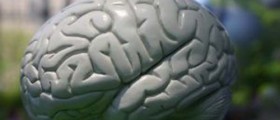
Dementia is a medical term that refers to a group of symptoms which develop as a consequence of loss of brain functions due to some underlying illness. Dementia causes severe changes in one's memory, thinking, language, judgment and behavior.
The Underlying Causes of Dementia
Many types of dementia are progressive and cause permanent damage. The most frequent type of dementia is the one affecting people suffering from Alzheimer's disease.
Furthermore, dementia may occur in individuals who have suffered a mild stroke (vascular dementia), those suffering from Parkinson's disease, multiple sclerosis, Huntington's disease, Pick's disease, progressive supranuclear palsy and certain infections of the central nervous system (HIV/AIDS, Lyme disease etc.). Likewise, this health issue may be also associated with brain tumors, some metabolic disorders, low level of vitamin B12, normal pressure hydrocephalus, chronic alcohol abuse and finally, may be a side effect of some medications.
Dementia Clinical Characteristics
There is a whole range of symptoms and signs occurring due to dementia. There is damage to different areas of mental functioning. For instance, one may have problems with language, memory, perception, emotional behavior, personality, cognitive skills etc.
Initially, one faces forgetfulness. What follows is the stage of so called mild cognitive impairment. During this stage there are problems associated with thinking and memory but these do not interfere with everyday tasks and activities. Some of the symptoms of mild cognitive impairment are forgetting recent events, difficulty performing more than one task at the same time, difficulty solving problems etc.
Early dementia is typically characterized by relatively benign changes in one's behavior while progression of the disease leads to severe damage to almost every function which makes an individual practically unable to understand language, recognize family members and perform basic actions. Terminal stage leads to incontinence and swallowing problems.
Dementia Treatment Options
The goal of the treatment for dementia is to bring the symptoms of the condition under control. Treatment basically depends on the underlying cause of dementia and the stage of the disease.
Treatment is most commonly medicamentous, treating the underlying condition, while some drugs may also improve memory. Furthermore, dementia caused by brain tumors or some vascular abnormalities may be dealt with surgically.
There is a variety of drugs administered to people suffering from dementia. Antipsychotics, mood stabilizers, serotonin-affecting drugs and stimulants are only some of them.
Finally, patients with advanced disease require permanent supervision of family members or are hospitalized. They simple cannot function on their own and, therefore, require professional help and family support all the time.

















Your thoughts on this
Loading...